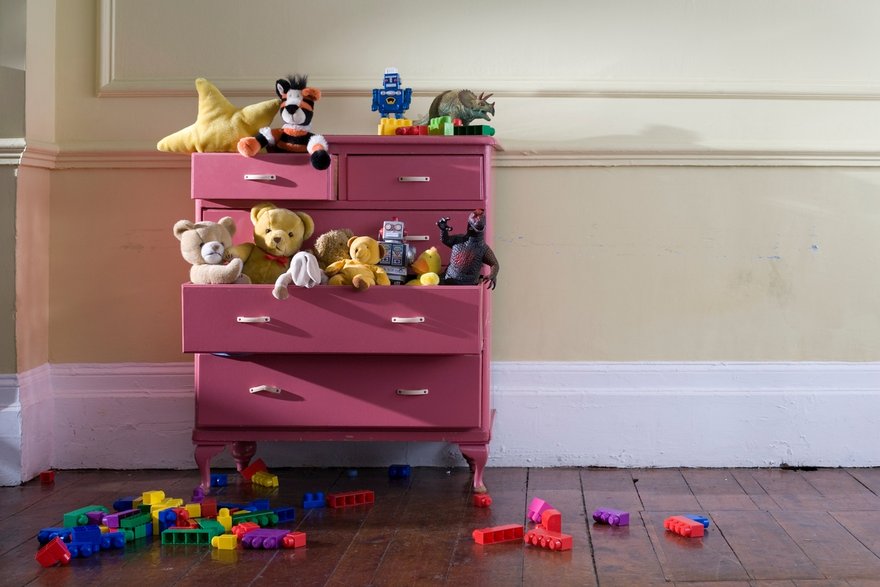The Lego Company is an iconic toy company. Its building block sets have been teaching children worldwide how to build for almost a century. The family-owned company has grown over the years by creating fresh products -- roughly half its portfolio of 750 products is a year old or less -- and expanding into new areas, like digital, movies, and theme parks.
Lego works with various partners to empower children to build new things and bring its products to life. The company's focus on innovation has helped it to grow faster than the toy market in recent years.

Lego's brand power and financial success likely have many fans and investors wondering whether they can buy Lego stock. Unfortunately, you can't invest in Lego because the company hasn't completed an initial public offering (IPO) yet.
However, there are many ways to invest in the toy and entertainment industries that drive Lego's growth. Here's everything you need to know about investing in Lego and similar companies.
IPO
Is Lego publicly traded?
Is the Lego Company publicly traded?
The Lego Group isn't a publicly traded company. It's a private company owned by Kirkbi A/S (75%) and the Lego Foundation (25%). Kirkbi A/S is the holding and investment company of the Kirk Kristiansen Family, the founder of The Lego Group.
In addition to Lego, Kirkbi owns a 3% stake in Epic Games, a 47.5% interest in Merlin Entertainment, and has investments in renewable energy, real estate, and several other companies. Meanwhile, the Lego Foundation helps parents and educators use the power of play to improve learning for millions of children.
When will Lego IPO?
When will the Lego Company IPO?
The Lego Company didn't have an IPO on the calendar as of early 2024. The company might never go public. It has been a private, family-owned company for more than 90 years.
How to buy
How to buy the Lego Company stock
You can't invest directly in the Lego Company stock because it's not a publicly traded company. However, you can still invest in the toy industry through one of its competitors. Three Lego Company alternatives are:
The Walt Disney Company
The Walt Disney Company (DIS -0.04%) is a media and entertainment giant. The company sells consumer products like toys, operates theme parks, and turns its characters into feature films and shows.
The company's portfolio of beloved consumer brands generated almost $89 billion of revenue during its 2023 fiscal year, 7% more than the previous year. Meanwhile, Disney made almost $13 billion in profit and produced almost $5 billion in free cash flow.
Free Cash Flow (FCF)
Hasbro
Hasbro (HAS -0.77%) is a leading toy and game company. Its portfolio of iconic brands includes Magic: The Gathering, Dungeons & Dragons, Nerf, Transformers, Play-Doh, and Peppa Pig.
Hasbro has refocused its strategy in recent years to grow the market share of its core brands, which led the company to sell its film and TV business in 2024 to concentrate on products that have made it great over the years. Although it will continue to develop and produce entertainment based on its characters, it won't be in the production business.
Mattel
Mattel (MAT -0.6%) is a leading toy company with a growing entertainment business. The company's portfolio of iconic brands includes Barbie, Hot Wheels, Fisher-Price, American Girl, Thomas & Friends, UNO, and others.
Its entertainment business had a breakout year in 2023, thanks to the blockbuster success of Barbie: The Movie. Mattel and its partners have several other entertainment offerings slated for 2024.
Investors who want to buy one of these Lego alternatives can purchase shares in any brokerage account. Here's a step-by-step guide on how to invest in stocks like the Lego Company.
Step 1: Open a brokerage account
You'll have to open and fund a brokerage account before buying shares of any company. If you still need to open one, here are some of the best-rated brokers and trading platforms. Take your time to research the brokers to find the best one for you.
Step 2: Figure out your budget
Before making your first trade, you'll need to determine a budget for how much money you want to invest. You'll then want to decide how to allocate that money. The Motley Fool's investing philosophy recommends building a diversified portfolio of 25 or more stocks you plan to buy and hold for at least five years.
Buy-and-Hold Strategy
You don't have to get there all at once. For example, if you have $1,000 available to start investing, you could begin by allocating that money equally across at least 10 stocks and then grow from there.
Step 3: Do your research
It's essential to thoroughly research a company before buying its shares. You should learn about how it makes money, its competitors, its balance sheet, and other factors to make sure you have a solid grasp on whether the company can grow value for its shareholders over the long term.
Step 4: Place an order
Once you've opened and funded a brokerage account, set your investing budget, and researched the stock, it's time to buy shares. The process is relatively straightforward. Go to your brokerage account's order page and fill out all the relevant information, including:
- The number of shares you want to buy or the amount you want to invest to purchase fractional shares.
- The stock ticker (DIS for Disney, HAS for Hasbro, and MAT for Mattel).
- Whether you want to place a limit order or a market order. The Motley Fool recommends using a market order since it guarantees you buy shares immediately at market price.
Once you complete the order page, click to submit your trade and become a shareholder in one of these toy and entertainment companies.
Investors would follow a similar process to buy an IPO stock should Lego decide to complete an IPO in the future. If shares become available to the public, fill out the order page at your brokerage account with the Lego Company's selected stock ticker and submit your trade.
Profitability
Is the Lego Company profitable?
Even though Lego is a private, family-owned company, it publishes its financial results. The company last reported its results in August 2023 for the first half of the year.
The Denmark-based company's revenue rose 1% compared to the first half of 2022 despite a challenging period in the toy market. Lego noted that demand for its products outpaced the industry as it continued to grow its market share.
While the company reported declining operating and net profits, its profitability aligned with its expectations as it accelerated its long-term strategic initiatives, including investing in manufacturing, digital, and sustainability. Meanwhile, Lego produced 1.1 billion Danish krone (about $160 million) of free cash flow after investing in new factories and expanding existing facilities.
Lego's ability to generate strong profits and cash flow even during challenging periods enables it to self-fund its growth. It doesn't need capital from outside investors, which has allowed it to remain a private, family-owned company.

Should I invest?
Should I invest in the Lego Company?
You can't invest in the Lego Company because it's a private, family-owned company. Since the family has controlled the company for over 90 years, outsiders might never be able to invest in its stock.
However, you can invest in the trends driving its growth by buying shares of entertainment and toy industry peers, like Disney, Hasbro, or Mattel. Unfortunately, the toy and entertainment industry has been challenging for investors in the recent past. Shares of Disney and Hasbro have lost value over the last five years, while Mattel has lost investors' money over the past decade.
On a more positive note, all three companies are working on strategies to improve their profitability. They have all cashed in on the value of their characters by bringing them alive through various forms of entertainment, including movies. Meanwhile, Disney is betting big on streaming. These investments might pay off in the coming years by increasing their earnings, which could potentially boost their stock prices.
ETF options
ETFs with exposure to the Lego Company
As the past performances of the leading toy stocks showcase, it can be hard to pick a winning stock investment. That's why many people prefer to invest passively instead of trying to actively manage a portfolio of stocks. Exchange-traded funds (ETFs) are a great way to do that since they enable you to invest broadly across the stock market or focus on specific themes.
Exchange-Traded Fund (ETF)
Unfortunately, you can't use ETFs to gain exposure to the Lego Company since it's a private company. However, you can use ETFs to capitalize on the growth in discretionary consumer spending on toys, movies, and theme parks. Two ETF options worth considering are:
- Invesco Leisure and Entertainment ETF (PEJ 0.36%): As the name suggests, this fund focuses on companies in the leisure and entertainment industry. It holds shares in 30 companies in the leisure, entertainment, and media industries. The fund charges investors a 0.58% ETF expense ratio to invest across those leading leisure and entertainment stocks.
- Vanguard Consumer Discretionary ETF (VCR 1.2%): This ETF focuses on consumer discretionary stocks. It holds shares of more than 300 companies that manufacture products and provide services consumers buy on a discretionary basis. The fund has a low 0.1% expense ratio, making it a low-cost way to invest in companies benefitting from growing discretionary spending.
Related investing topics
The bottom line on the Lego Company
People who love Lego can't invest in the toy company because it's a private, family-owned company. However, they can still invest in the toy and entertainment sectors through peers like Disney, Mattel, and Hasbro. Although they've battled the same headwinds from a challenging toy market, they have strategies they believe will grow value for their shareholders over the long term.
FAQ
Investing in the Lego Company FAQ
Can you buy stock in Lego?
You can't buy stock in Lego. It's a private, family-owned company.
Does Lego have stock?
Lego does not have a stock because it's not a publicly traded company. It's a private, family-owned company.
Is Lego a private or public company?
Lego is a private company. An investment company controlled by the Kirk Kristiansen family and the Lego Foundation owns the Lego Company.
What is the stock price for Lego?
There is no stock price for Lego. It's a private, family-owned company.
































































































































































































































